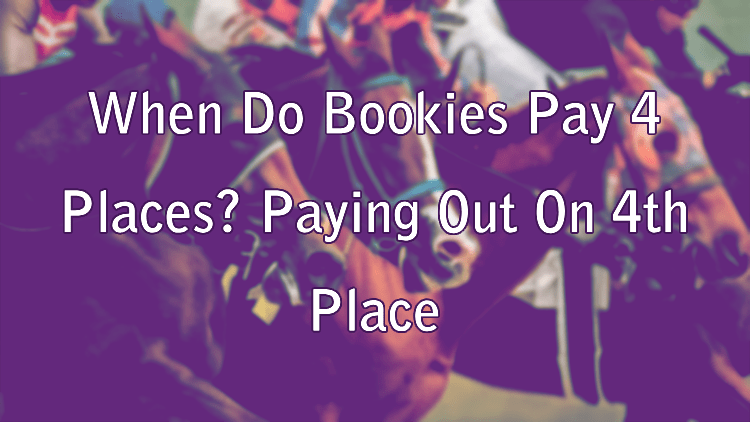
One of the most common questions in the world of horse racing betting is: "When do bookies pay 4 places?" This question often arises when punters are placing each-way bets, a type of wager that splits the stake into two parts - one for the potential win and one for a place.
In essence, each-way betting is a way to hedge your bets, offering potential wins even if your horse doesn't sprint to first place. But the crucial factor here is the number of places the bookmaker is willing to pay out on, which could significantly influence your returns.
What Does Paying 4 Places Mean?
When a bookmaker is paying 4 places, it means they will pay out for horses that finish first, second, third, and fourth in a race. This is particularly relevant if you're placing each-way bets, which are divided into two parts: a win bet and a place bet.
If your horse wins the race, both parts of your bet win. But if your horse doesn't win but finishes within the top four (in this case), the place part of your bet wins. In other words, even if your horse doesn't come in first, you can potentially still reap some rewards if it finishes within the top four.
Do Bookies Pay Out On 4th Place?
Bookmakers typically have specific rules and standards for the number of places they pay out on. These rules can vary depending on the number of runners in a race and the type of race. In general, the more runners there are in a race, the more places the bookmaker is likely to pay out on.
For example, in a horse race with five to seven runners, bookmakers will typically pay out on the first two places. But in a race with 16 or more runners, bookmakers will usually pay out on the first four places.
However, it's essential to understand that these are just general rules. Some bookmakers may offer better place terms as promotions for certain races or events. For instance, during high-profile events like the Grand National, some bookmakers might pay out on as many as eight places.
How Many Horses Have To Run For 4 Places?
The number of horses that have to run for bookies to pay out on four places typically depends on the type of race and the specific rules of the bookmaker. However, as a general rule of thumb, bookmakers will usually start paying out on four places when there are 16 or more runners in a race.
It's also worth noting that these rules apply to both flat races and jumps races. And in some handicap races with particularly large fields, bookmakers may even pay out on five or six places.
When Do Bookies Pay 4 Places?
While the number of runners in a race often determines the number of places paid out, there are occasions when bookmakers offer enhanced place terms. This usually happens during high-profile events or major horse racing festivals.
For instance, during the Cheltenham Festival or Royal Ascot, some bookmakers might offer to pay out on four places for certain races, regardless of the number of runners. Similarly, for highly anticipated races like the Grand National, bookmakers might pay out on up to six or even eight places.
In conclusion, understanding the concept of place payouts and each-way betting is crucial for any horse racing punter. It's always recommended to check the specific terms and conditions of each bookmaker before placing any bets. This information can significantly impact your potential returns and overall betting strategy.
Please gamble responsibly.
